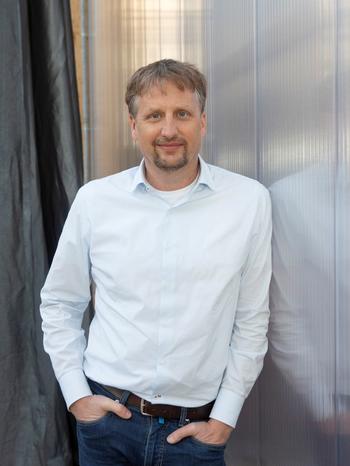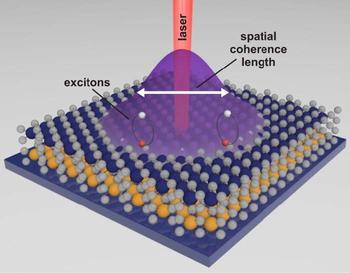Physics Colloquium & TRR 227: Prof. Dr. Alexander Holleitner: How to observe an excitonic Bose-Einstein condensate
Prof. Dr. Alexander Holleitner
Image Credit: TUM
How to observe an excitonic Bose-Einstein condensate
Image Credit: J. Figueiredo/TUM
Technical University of Munich, Department of Physics and Walter Schottky Institute, Munich
Joint Colloquium of the Physics Department and the TRR 227 „Ultrafast Spin Dynamics“In this lecture, Prof. Holleitner will present his research in the field of excitons. In particular, he will discuss the Bose-Einstein condensate and the impact of temperatures
One of the true “holy grails” in exciton physics is the search for a Bose-Einstein condensate of excitons at elevated temperatures. I will introduce the necessary experimental prerequisites such that an exciton condensation can be claimed. Particularly, I highlight the example of interlayer excitons formed in van der Waals MoSe2/WSe2 heterobilayers. There, we could demonstrate an extended spatial coherence of interlayer exciton ensembles as characterized by point-inversion Michelson-Morley interferometry.
Below 10 K, the measured spatial coherence length of the interlayer excitons reaches values equivalent to the lateral expansion of the exciton ensembles. In this regime, the light emission of the excitons turns out to be homogeneously broadened in energy with a high temporal coherence. At higher temperatures, both the spatial coherence length and the temporal coherence time decrease, most likely because of thermal processes.
The presented findings point towards a spatially extended, coherent many-body state of interlayer excitons at low temperature.
Time & Location
Nov 24, 2023 | 03:00 PM c.t.
Lecture Hall B (0.1.01)
Department of Physics
Arnimallee 14
14195 Berlin
Further Information
Host
Keywords
- Alexander Holleitner
- Nanomaterials
- Nanotechnology
- Technical University of Munich
- TUM

